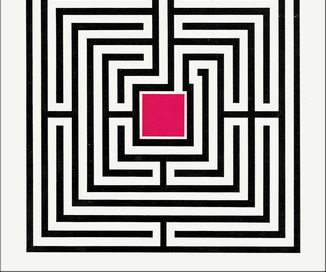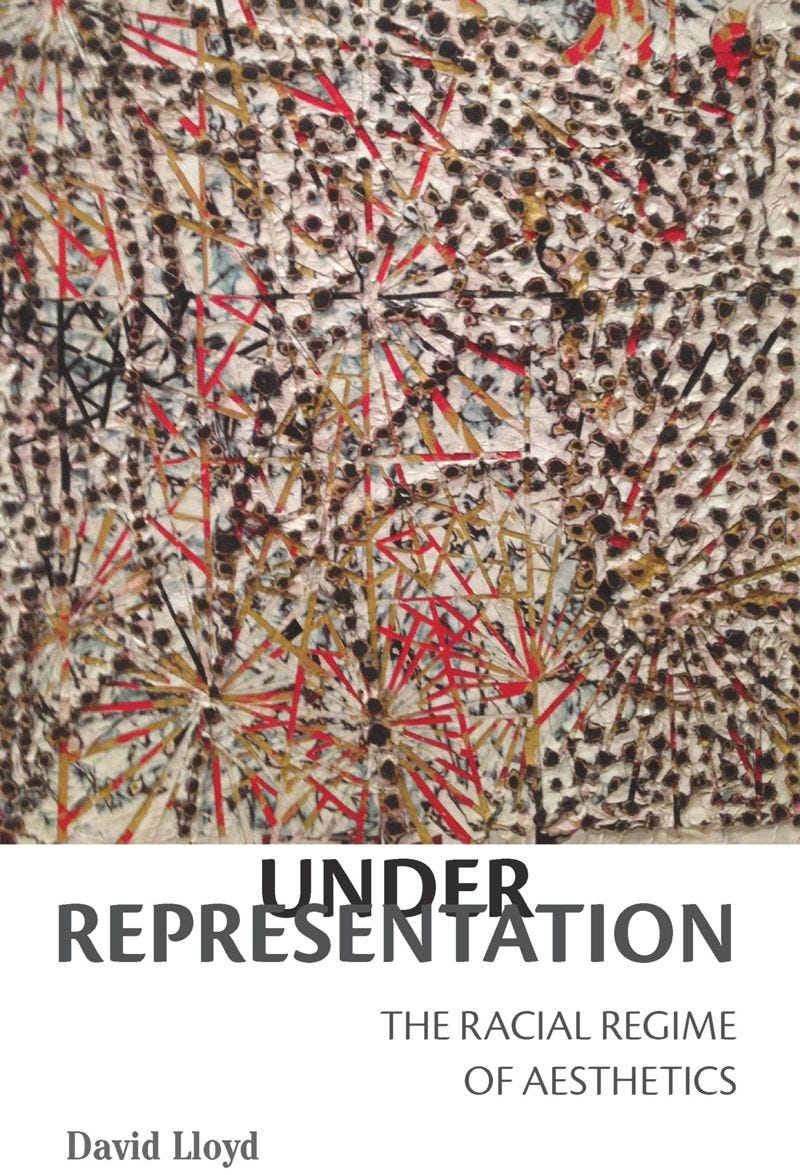I woke up shortly after 5 this morning after dreaming that Adorno had been cancelled by Horkheimer. I was in some combination of two of my childhood/teenagehood apartments, blurred together into some phantasmagoric collection of discongruent meanings. I was supposed to be getting ready for school, and all I could feel was the familiar panic, the dread, the despair of it all: being woken up, the mild darkness of the pre-lit morning, the cold damp of the bathroom tile that you can smell the temperature off. The memory of it feels worse than the dream-experience did, so that’s something.
I’ve been promising (to whom? Whatever) for weeks now that I would write about the small set of books that I’ve been working my way through slowly over months/years. I am here to follow through on this promise, should this interest you. Here’s some more relevant reading before we dive in, if you’re so inclined:
Asylums - Erving Goffman
It was June when I stumbled across this book, I’m not sure of which year, probably something like 2023. I had encountered a newfound (or perhaps more accurately, a newly renewed) fascination with psychiatry, and specifically psychiatric institutionalisation, and more specifically, the psychiatric and medicalised treatment of children as a sight of discourse and investigation about children’s rights more broadly. At Housmans Bookshop, after combing through their enviable catalogue of zines and periodicals and shiny, awe-inspiring texts about how we might not be so doomed after all, I asked about books in my new pet interest, and they pointed me to a small section by the till. I picked out A Matter of Appearance by Emily Wells, which quickly became one of my favourites of all time, and Asylums by Erving Goffman, which I’m still less than halfway through.
It’s unsurprisingly a foundational text in the study of institutionalisation, and the thing I’ve found most interesting about it is the way it understands “institution” (not even necessarily “total” institution) as a category that is expansive and adaptive — an initially unintuitive classification for something that conjures up images of restriction and regime. For Goffman, however, the institution is to do more with the relations created within a particular system of constraints, rather than the constraints themselves. His analysis includes everything from nunneries to ships to private boarding schools to, most classically, prisons and psychiatric asylums. The most startling result of his analysis appears in the similarities he delineates across these differing forms of institutionalisation, locating their structural manifestations in relations such as “ritual” and the formations of community, rather than in the dominant set of intentions or ambitions laid out by the institution itself (distinct from, and comprised partly of, the “staff”).
I went into this book hoping to understand more about historical attitudes to psychiatry and institutionalisation (and their connections to imprisonment), but its scope branched much further beyond these specific analytical categories to create a much deeper and more thematic understanding of the social process of institutionalization and its self replication through control, coercion, and violence, as well as the ways in which individuals (and communities) negotiate it in sustained and sporadic manners. So far, I’ve found it to be an immensely empathetic text — perhaps too much so, in terms of the amount of academic “neutrality” it extends in the direction of “staff”, but for the purposes of the study this realistically can’t be done without, and presents something useful and valuable about how roles of violence and power contain human conditions within them). It feels, in every way, like a seminal text, and I’m very excited to slowly and steadily make my way through it, one page, one chapter, one anecdote at a time, over the next few months, or realistically, years.
Suggested reading:
“Broke Psychoanalysis” - Kevin Duong, Parapraxis
“The Campus Does Not Exist” - Samuel P. Catlin, Parapraxis
“The Despair of the Young” - Mary Gaitskill, Out of It
Under Representation - David Lloyd
I don’t remember exactly when I began reading this, but I know it was a gift from Cian (I think something like 2-3 years ago?) when I was in India. I’d seen it on Twitter and added it to my StoryGraph TBR from where he picked it out among the dozens of other titles, and I’m grateful everyday that he did. I finished reading this book today; it’s not even a slight overstatement to say that it has changed my life, in a way very few books do, in a way I can only recall being comparable to David Graeber’s Utopia of Rules, which took me a somewhat similar time to finish reading (despite its comparatively accessible, non-academic language and the conversational, less jargonistic content of its ideas), and Avgi Saketopoulou’s Sexuality Beyond Consent, which, contrastingly, I inhaled in a matter of weeks.
I found Under Representation at a time when I wasn’t just primed for something to overhaul my understanding of (and shape within) the world, but also to reconfigure my relationship to reading, learning, and investigating it in a way that was real. As I settled into reading it, I immediately felt pulled, drawn into it; I remember I was in the middle of something else at the time and was in a phase of training myself to read through inorganic commitment and forced concentration (things which undoubtedly helped, regrettably). I did, however, allow myself to simply read what felt good, inviting, curious — I felt genuinely ensnared by this book, and while I took my time (going months without revisiting it at times), every return felt like a genuine rekindling of being alive, a new way of existing, a reminder of how to think and feel human.
Lloyd’s thesis centers around “representation” as a mode of hegemonization and power-maintenance that has served to construct defaultness in a way that excludes racialised (pathologized) individuals from humanness. He situates this within the pedagogical contexts of the humanities as a set of disciplines (whose “traditional function” he defines as “producing subjects for the state”), within racialisation and subaltern representation as methods of exclusion and relation, and in the history of thought itself, deconstructing with startling lucidity the works of Kant, Fanon (to whom he acknowledges a particular debt), Marx, Adorno, Spivak (whom he, for lack of better word, kind of eviscerates), Hegel, and everyone else. He writes with startling respect and self-assurance, a kind of grace permeating every inch of his analysis and shaping the contours of the world he is gesturing to. Like after encountering Graeber’s work and being unable to view the world outside of its bureaucratic mechanisms, Lloyd’s book transformed me into a person who is unable to envision power and its fluctuations and its control and its weaponization outside of its aesthetic representation(s) — a form of wielding the materials of society that feels permanently, universally embedded in their meanings and their perceptions. Some of the ways in which this book has shaped my thoughts are evident here:
When I looked up the author a while into reading the book, it felt like the warmest serendipity to discover that he’s an Irish poet. He’s also been actively campaigning for a total boycott of israel since at least 2009.
I couldn’t possibly do justice to what this book has meant for me and what it has made possible in my own mind. There is loads in it that I simply didn’t grasp (yet); I’m grateful for the chance to keep returning to it in future, grateful for all the ways it will continue to help me reimagine everything, forever.
“Out of the ruins of representation we may envisage collectively the possibilities of other worlds together.”
– David Lloyd, Under Representation
Suggested reading:
“Notes on Craft: Writing in the Hour of Genocide” - Fargo Tbakhi, Protean Magazine
Fredric Jameson, A Singular Modernity
“PEN America: Cultural Imperialism’s Avant-Garde” - Joe Hall, Coma
Some difficult books, like many of the best things in the world, are worth taking the time: not in a way that’s necessarily obstructed or lethargic (though why not, once in a while), but in a manner that’s more indulgent than it is frustrated, a state of delight and joy and bewilderment at getting to be here in the first place, at all, ever.










